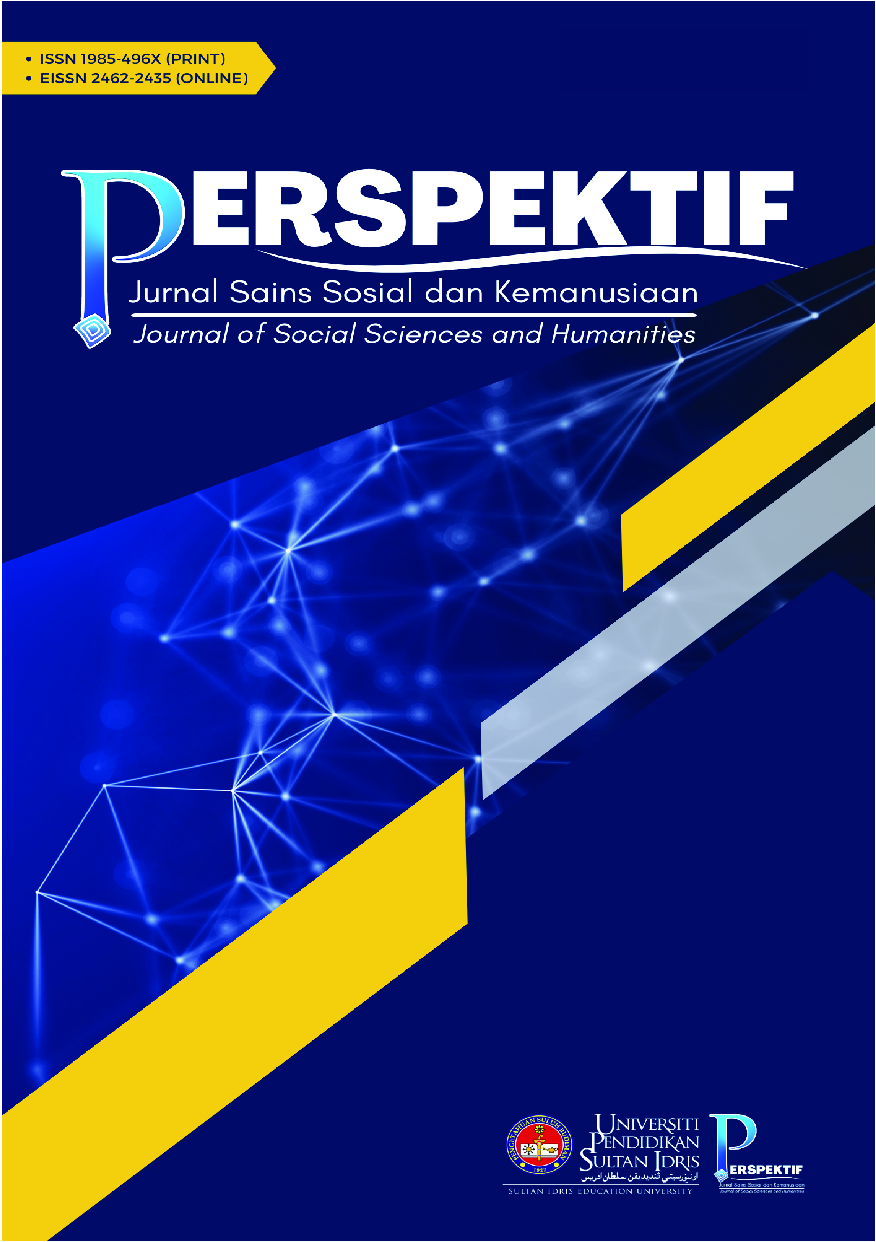Perception of University M Undergraduate Students in Off-Campus Residential Area towards Online Scamming: A Case Study
DOI:
https://doi.org/10.37134/perspektif.vol16.1.10.2024Keywords:
perception, online scamming, university studentsAbstract
Perception of online scamming is crucial for university students. At University M, undergraduate students are encountering online scams. This study investigates the opinions of University M undergraduates living in off-campus student housing. Multistage sampling is employed to create clusters and sub-clusters within the sample, and statistical methods such as frequency analysis, factor analysis, and descriptive statistics are utilized. Data analysis is conducted using the Statistical Package for Social Science (SPSS) and Excel. The sample comprises University M undergraduates residing in off-campus housing who completed a questionnaire, serving as the data source for this research. The study examines the awareness of online scamming among University M undergraduates in off-campus housing, identifies major factors contributing to online scamming, and explores effective ways to prevent it. The results indicate that the primary factors influencing students' experiences with scams are technological tools, lack of awareness, and human factors. Findings reveal that the majority of students have encountered scams before and that students living in off-campus housing exhibit high awareness of online scamming. The preferred method for avoiding scams among these students is exercising caution with personal information.
Downloads
References
Stephanie Glen. (2021). "Sample Size in Statistics (How to Find it): Excel, Cochran’s Formula, General Tips" From StatisticsHowTo.com: Elementary Statistics for the rest of us! Retrieved from: https://www.statisticshowto.com/probability-and-statistics/find-sample- size/
Zaharon, N. F. M., Ali, M. M., & Hasnan, S. (2021). Factors Affecting Awareness of Phishing Among Generation Y. Asia-Pacific Management Accounting Journal, 16(2), 409–444.
Ajibade, A. I. (2023, June 5). Financial scams and the impacts on young people | Internet Matters. Internet Matters. https://www.internetmatters.org/hub/expert-opinion/financial-scams- impacts-young-people/
Bhat, A. (2023). Multistage Sampling – Definition, steps, applications, and advantages with example. QuestionPro. https://www.questionpro.com/blog/multistage-sampling- advantages- and-application/
Australia. Parliament. House of Representatives. Standing Committee on Communications. (2010). Hackers, fraudsters and botnets: tackling the problem of cybercrime, the report of the inquiry into cybercrime / House of Representatives, Standing Committee on Communications - Trove. https://trove.nla.gov.au/work/37494558
Bavani M. (2020). 6,187 scammed by online sellers | The Star.
https://www.thestar.com.my/metro/metro-news/2020/07/20/6187-scammed-by-online-sellers
Mohameh Basyir, Hana Naz Harun (2022). Online scam cases increasing in Malaysia. New Straits Times. https://www.nst.com.my/news/nation/2022/09/834531/online-scam-cases- increasing-malaysia
Statistics Solutions. (2021, August 10). Factor Analysis. Retrieved from:
Paul Lavrakas. (2008). Encyclopedia of Survey Research Methods. Retrieved from:
https://doi.org/10.4135/9781412963947.n105
Awareness of Online Scams Among Young People: Free Essay Example, 1386 words. (2022, October 13). Samplius. https://samplius.com/free-essay-examples/awareness-of-online-scams-among-young-people/
Bhandari, P. (2023). Multistage Sampling | Introductory Guide & Examples. Scribbr. https://www.scribbr.com/methodology/multistage-sampling/
Stephanie. (2023, March 3). Multistage Sampling: Definition, Examples, Advantages – Statistics How to. Statistics How To. https://www.statisticshowto.com/multistage-sampling/
Wen, X., Xu, L., Wang, J., Gao, Y., Shi, J., Zhao, K., Tao, F., & Qian, X. (2022a). Mental states: a key point in scam compliance and warning compliance in real life. International Journal of Environmental Research and Public Health, 19(14), 8294.
Chua, A. (2023, September 5). Losses Due to Online Scams in Sarawak Almost Doubled in First Seven Months of This Year, Say Cops. Retrieved from https://www.thestar.com.my/news/nation/2023/09/05/losses-due-to-online-scams-in-sarawak-almost-doubled-in-first-seven-months-of-this-year-say-cops.
Lee, B., & C. Aruno. (2023, September 5). M’sians Likely to Lose RM120mil to Online Scams This Year, Says Ministry. Retrieved from https://www.thestar.com.my/news/nation/2023/09/05/msians-likely-to-lose-rm120mil-to-online-scams-this-year-says-ministry.
Lee, A. S., & Hovorka, D. (2015). Crafting theory to satisfy the requirements of interpretation. System Sciences (HICSS), 2015 48th Hawaii International Conference On, 4918-4927.
Johnston, A. C., & Warkentin, M. (2010). Fear appeals and information security behaviors:
An empirical study. MIS Quarterly, 34(3), 549-566.
Mulligan, G. (1999) Removing the Spam; E-mail Processing and Filetring, Mass.: Addison-Wesley.
Getz, M. (2021). “we had more in common than I thought”: Scamming as an undergraduate service learning topic involving older adults. Innovation in Aging, 5(Supplement_1), 753–754. https://doi.org/10.1093/geroni/igab046.2795
Coluccia, A., Pozza, A., Ferretti, F., Carabellese, F., Masti, A., & Gualtieri, G. (2020). Online romance scams: Relational dynamics and psychological characteristics of the victims and scammers. A scoping review. Clinical Practice & Epidemiology in Mental Health, 16(1), 24–35. https://doi.org/10.2174/1745017902016010024
Downloads
Published
Issue
Section
License
Copyright (c) 2024 Kelvin Tan Kar Wing, Hasimah Sapiri, Zahayu Md Yusof, Masnita Misiran

This work is licensed under a Creative Commons Attribution-NonCommercial-ShareAlike 4.0 International License.



